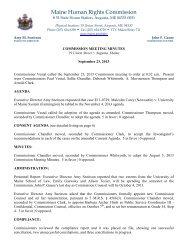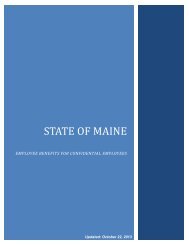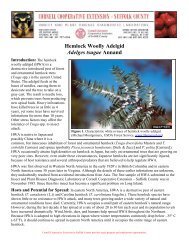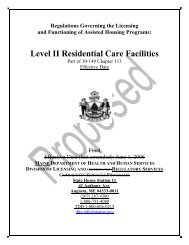SOS: A Handbook for Survivors of Suicide - American Association of ...
SOS: A Handbook for Survivors of Suicide - American Association of ...
SOS: A Handbook for Survivors of Suicide - American Association of ...
You also want an ePaper? Increase the reach of your titles
YUMPU automatically turns print PDFs into web optimized ePapers that Google loves.
<strong>Suicide</strong> is Different<br />
Death touches all <strong>of</strong> our lives sooner or later.<br />
Sometimes it is expected, as with the passing <strong>of</strong> an<br />
elderly relative; sometimes it comes suddenly in the<br />
<strong>for</strong>m <strong>of</strong> a tragic accident.<br />
But suicide is different. The person you have lost seems to<br />
have chosen death, and that simple fact makes a world <strong>of</strong><br />
difference <strong>for</strong> those left to grieve. The suicide survivor faces<br />
all the same emotions as anyone who mourns a death, but<br />
they also face a somewhat unique set <strong>of</strong> painful feelings on<br />
top <strong>of</strong> their grief...<br />
� GUILT. Rarely in other deaths do we encounter any feelings <strong>of</strong> responsibility.<br />
Diseases, accidents, old age... we know instinctively that we cannot cause or<br />
control these things. But the suicide survivor—even if they were only on the<br />
periphery <strong>of</strong> the deceased’s life—invariably feels that they might have, could<br />
have, or should have done something to prevent the suicide. This mistaken<br />
assumption is the suicide survivor’s greatest enemy. (See page 16).<br />
� STIGMA. Society still attaches a stigma to suicide, and it is largely<br />
misunderstood. While mourners usually receive sympathy and compassion, the<br />
suicide survivor may encounter blame, judgement, or exclusion.<br />
� ANGER. It’s not uncommon to feel some <strong>for</strong>m <strong>of</strong> anger toward a lost loved<br />
one, but it’s intensified <strong>for</strong> survivors <strong>of</strong> suicide. For us, the person we lost is<br />
also the murderer <strong>of</strong> the person we lost, bringing new meaning to the term<br />
“love-hate” relationship. (See page 21).<br />
� DISCONNECTION. When we lose a loved one to disease or an accident, it<br />
is easier to retain happy memories <strong>of</strong> them. We know that, if they could<br />
choose, they would still be here with us. But it’s not as easy <strong>for</strong> the suicide<br />
survivor. Because our loved one seems to have made a choice that is abhorrent<br />
to us, we feel disconnected and “divorced” from their memory. We are in a<br />
state <strong>of</strong> conflict with them, and we are left to resolve that conflict alone.<br />
2

















